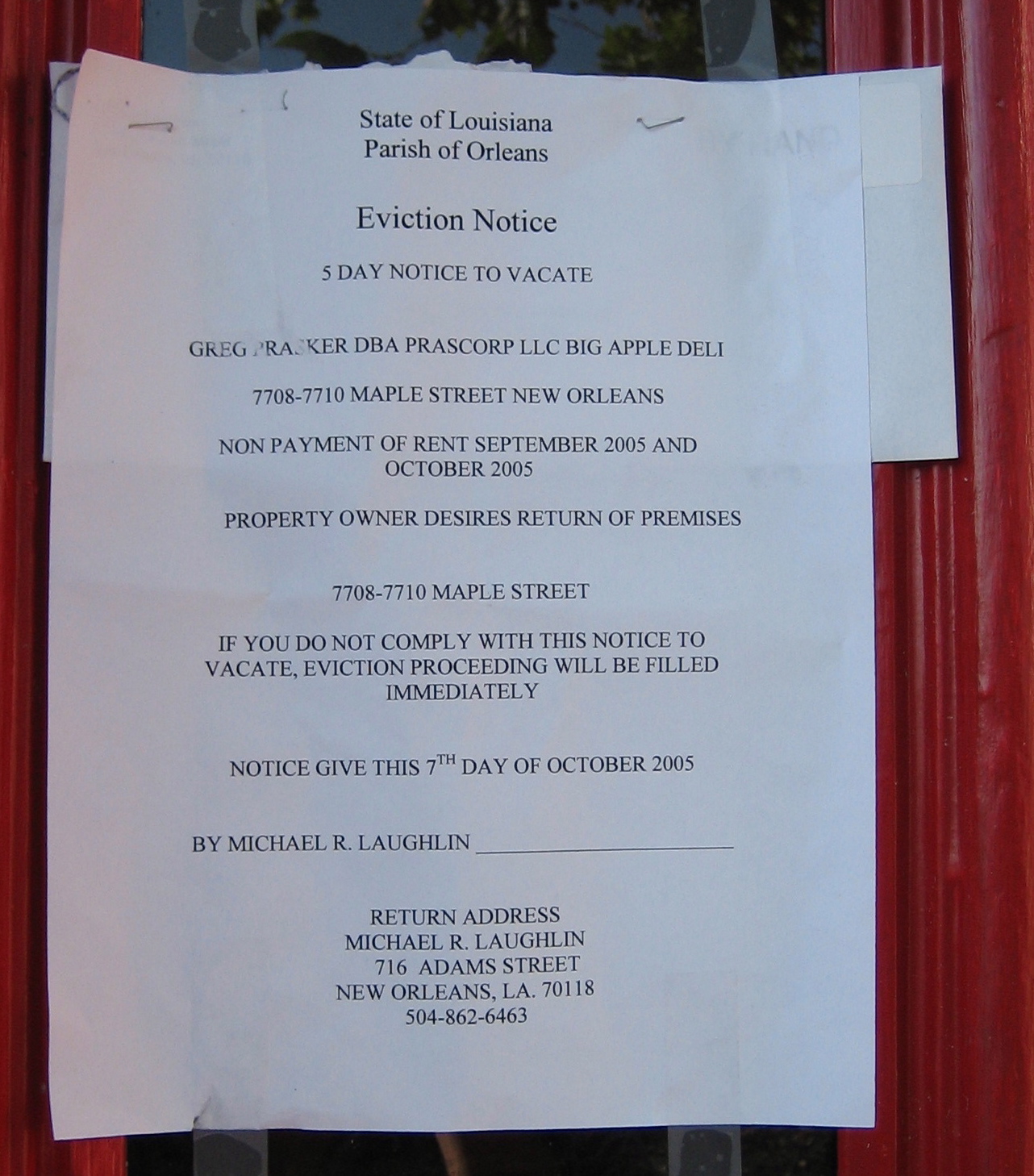Dealing With a Tenant Who Has Breached Its Lease
March 25, 2014
 As a commercial landlord, one of the considerations one must make is how to deal with a tenant who has failed to live up to the express terms of its lease. A landlord may sometimes seek to work out an amicable solution that allows the tenant to bring itself into compliance and stay on the property. In some cases, this is not an option, and eviction becomes necessary. when that happens, it is essential that the landlord understand and follow the rules for completing a legally compliant eviction.
As a commercial landlord, one of the considerations one must make is how to deal with a tenant who has failed to live up to the express terms of its lease. A landlord may sometimes seek to work out an amicable solution that allows the tenant to bring itself into compliance and stay on the property. In some cases, this is not an option, and eviction becomes necessary. when that happens, it is essential that the landlord understand and follow the rules for completing a legally compliant eviction.
New Jersey law regarding commercial evictions is located in the state statutes at NJSA 2A:18-53. According to the law, if a tenant has violated its lease by failing to pay rent, the landlord does not owe the tenant any notice before going forward with an eviction process. However, if the violation for which the landlord seeks eviction involves a breach of a lease provision other than rent, the law generally requires the landlord to provide the tenant with notice of its intentions before actually evicting that tenant.
The proper document for giving the required notice to the tenant is called a “Notice to Quit” or “Notice to Cease.” The amount of notice that the landlord must provide to the tenant depends on the nature of the tenant’s violations. If the tenant is disturbing the peace or destroying the landlord’s property, the landlord must offer the tenant only three days’ notice. Additionally, if the tenant is “constantly” violating the rules and regulations imposed by the landlord, or committed a violation that triggers a right of re-entry that the landlord reserved in the lease agreement, then the three-day notice period also applies.
While the law requires that the landlord submit the written notice and observe the required notice period before actually evicting the tenant, it does not require that the landlord complete the notice process before filing a court action related to the breach. In a 2011 ruling, 350 Main St. LLC v. Ren Guan Li, the NJ Appellate Division concluded that, although Section 2A:18-53 requires the notice, it does require that that notice be a pre-suit one. The rule requiring pre-suit notice is only contained in New Jersey’s Anti-Eviction Act, Sections 2A:18-61.1 and 2A:18-61.2, which only governs residential evictions. Because nothing in Section 2A:18-53 requires pre-suit notice, commercial landlords are not bound by that obligation.
Performing the eviction of a commercial tenant is often not as procedurally thorny as a residential eviction in New Jersey, but it nevertheless requires adherence to certain specific procedural obligations. If you need to evict your commercial tenant, or are a commercial tenant facing an improper eviction attempt, you should consult qualified legal counsel about your lease. Reach out to the real estate attorneys at Samuel C. Berger, P.C. Our New Jersey real estate attorneys can provide you with the counsel and representation you need to ensure that your eviction process is one that matches what the law requires. Reach us online or call (201) 587-1500 or (212) 380-8117.
Contact us through our website or call to schedule your free, confidential initial consultation today.
Blog Posts:
New Jersey Administrative Rule Will Ban Direct Sales of Tesla Automobiles to Consumers, New York & New Jersey Business Lawyer Blog, March 13, 2014
H-2B Guest Worker Program Poses Problems for Both Workers and Employers, New York & New Jersey Business Lawyer Blog, Jan. 8, 2015
Copious, Even Redundant, Recordkeeping Can Save You Thousands If You’re Audited, New York & New Jersey Business Lawyer Blog, Dec. 27, 2013
Photo credit: Wikimedia Commons.
 Hackensack, New Jersey Commercial Eviction Lawyer Samuel C Berger, PC Home
Hackensack, New Jersey Commercial Eviction Lawyer Samuel C Berger, PC Home



